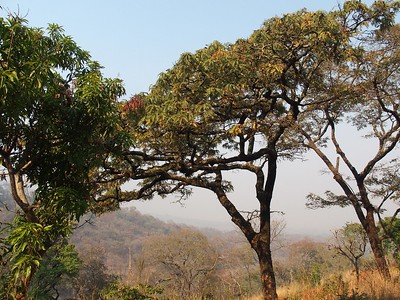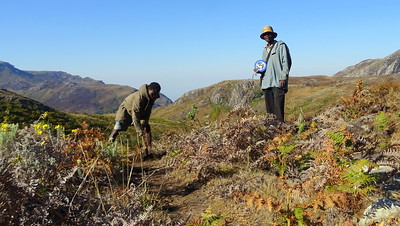AP Sensing Invests in New Tree Planting Initiative
Starting in the last quarter of 2019, AP Sensing began planting 100 trees for every fiber optic sensing interrogator (DAS/DTS/DVS) unit sold, plus additional trees to assist in offsetting the environmental impact of our business travels. This stems out of a desire to take concrete action in the area of climate change, C02 emission reduction, environmental protection and social impact.

“As a continually growing, socially responsible company, it was important for us to take the next step,” AP Sensing CEO Clemens Pohl said when discussing his initial idea for the project. “Our technologies are used to safeguard critical assets and therefore assist in protecting the environment and people within it. However, our success from selling these technologies also gives us not only the means but also the responsibility to make further contributions and go beyond what we are currently doing.
“Climate change is a serious problem for all of us and CO2 emission reduction is very important, so we wanted to address it.”
The project of restoring the Mulanje Forest in Malawi does just that. As an area that is facing severe deforestation and degradation, this WeForest project invests in restoring the forest, protecting its unique biodiversity, reducing the impact of climate change and creating a sustainable livelihood for the local communities.

WeForest utilizes a scientific approach to restoring forests, which ensures maximum survival of the trees planted, carbon sequestration and a forest ecosystem that functions as it did before deforestation. A healthy forest in this area also supports local agriculture, affects the soil and local water supply, and has an economic impact on the region. Besides tree planting, agroforestry takes place in Malawi to train local communities and properly protect the forest. Alternative sources of income are generated for local farmers through the harvesting of fruit, mushrooms and honey.
So, why did AP Sensing specifically choose to plant trees?
Well, the benefits of tree planting have been proven to be widespread. Reforestation is vital to climate protection, as trees remove carbon dioxide from the atmosphere and release oxygen. In addition to climate protection, reduced CO2 emissions, and forest restoration, trees also contribute to air quality, water supply, plant and animal species and ecosystems, job creation and overall human health. Tree planting is a solution with countless benefits that feed back directly into caring for the planet.
The AP Sensing tree planting initiative, called Passion for Plants, is intended to be a long-term partnership with WeForest. “Malawi Mulanje is a relatively new project, so we hope to contribute to this specific project for a long time and see the progress in the years to come,” explained Clemens Pohl.

AP Sensing is a leading company in distributed fiber optic sensing technologies and proud to have additional ongoing initiatives to “give back”. For more information on our social responsibility or tree planting initiative, visit the AP Sensing social responsibility webpage.
*The photos used on this page are ©WeForest